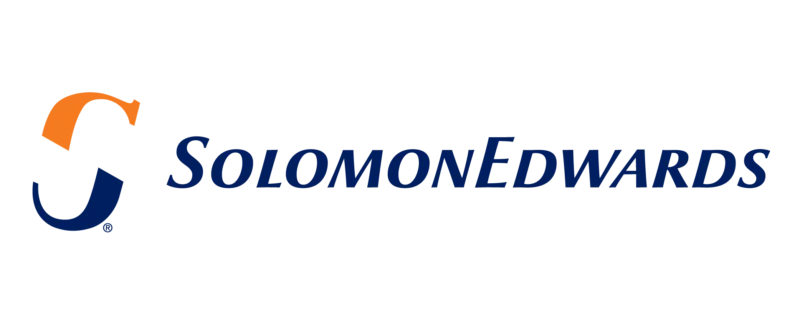After a quiet stretch, the IPO market is beginning to stir again—in fact, IPO listings have increased more than 80% year-over-year. Whether you’re among those eyeing a public debut—in the near-term plan or as a longer-term possibility—companies considering the transition from private to public need to prepare well in advance.
Through our work with companies at various stages of IPO readiness, what we’ve seen time and again is this: A successful initial public offering doesn’t start with filing an S-1; it starts well before then with a strategic evaluation of your current people, processes, capabilities and financial infrastructure.
Here are seven critical questions CFOs, controllers and financial sponsors should be asking if an IPO might be in your future:
![]()
Can we produce fully compliant, audit-ready financial statements quickly and accurately?
IPO-bound companies need financial statements that are compliant with U.S. GAAP and SEC reporting standards, including comparative periods and quarterly results. That means fast, consistent close processes and tight controls over reporting. If your current financials are prepared primarily for tax purposes or private stakeholders, they’ll likely need to be revised or reformatted. Public companies also face expanded disclosure obligations. This includes detailed segment reporting and MD&A (Management Discussion and Analysis) requirements—none of which can be pulled from basic trial balances alone. Ensuring your finance team can meet these standards now avoids delays later.
![]()
How strong are our accounting policies—and where are the gray areas?
Critical accounting policies—such as revenue recognition, lease accounting, stock-based compensation, debt instruments and goodwill—often come under scrutiny in the IPO process. Any ambiguities, inconsistencies or unsupported judgments can trigger restatements or delays. Conducting a technical accounting review and documenting these policies now help eliminate red flags and re-work when it matters most.
![]()
Is our monthly and quarterly close process aligned with public company expectations?
Timeliness and accuracy are non-negotiable for public companies. If it currently takes 15-plus days to close the books and prepare a reporting package, that timeline will need to shrink—significantly. Public companies typically close the books within 10 or fewer business days. If your timeline exceeds that, acceleration will likely require better coordination across functions, automation and compressed review cycles. Implementing more structured processes, improving data flow from disparate sources, and automating wherever possible are key steps toward IPO readiness.
![]()
Do we have the right talent and structure to support public company reporting?
Public companies require deeper bench strength, especially in areas like SEC reporting, technical accounting and financial planning. You may need to supplement your internal team with experienced partners to navigate new demands, whether it’s for building reporting infrastructure, addressing auditor requests or preparing for earnings calls. Consider this your “human capital audit”—do you have the right people in the right seats, or do you need outside support to bridge gaps?
Some companies find value in leveraging flexible external resources during intense cycles like S-1 prep, quarterly closes and SOX buildouts—especially when public company experience is lacking internally.
![]()
Have we evaluated our internal controls and governance frameworks?
You don’t need to be SOX compliant before you go public—but you do need a roadmap. Auditors will expect a plan to strengthen internal controls over financial reporting (ICFR) with documentation and testing that aligns with public company standards. Now’s the time to assess existing control gaps and begin implementing a scalable framework that won’t stall progress down the line.
![]()
Have we reviewed our auditor relationships and regulatory requirements?
Not all audit firms are PCAOB-registered or equipped to handle the complexities of IPO-related filings. If your current firm isn’t positioned to continue through the public offering process, switching firms will involve time-consuming re-audits and coordination across multiple periods. It’s wise to evaluate this early to mitigate downstream disruption.
![]()
Are our past three years of financial data IPO-ready?
Public filings require three years of income statements and two years of balance sheets, plus comparative quarterly data. Historical adjustments—like converting private-company amortization of goodwill to public-company standards—may be needed. Starting this work now ensures your prior periods won’t hold you back when it’s time to go public.
Readiness Isn’t Optional
The timeline for an IPO may be self-imposed, but readiness is not. Even if you’re uncertain of your path or timing, the climate is right to assess your readiness with the goal of identifying capability gaps and building the infrastructure needed to operate like a public company. This type of review will afford you options and enable speed when the timing is right.
If you’re weighing the path to an IPO, let’s talk. We can help you evaluate where you stand—and what it will take to get you IPO ready.
About the Author
John Schroeder, CPA, serves as a Principal in the SolomonEdwards’ Accounting & Finance Operations Support practice. He brings strong hands-on expertise in serving clients with system implementation and optimization engagements, business carve-outs and spin offs, public company financial reporting, and audit readiness and facilitation. Most recently, John managed several optimization projects focused on financial close and enabling workflow and governance technologies.
To learn more, connect with John at jschroeder@solomonedwards.com.





